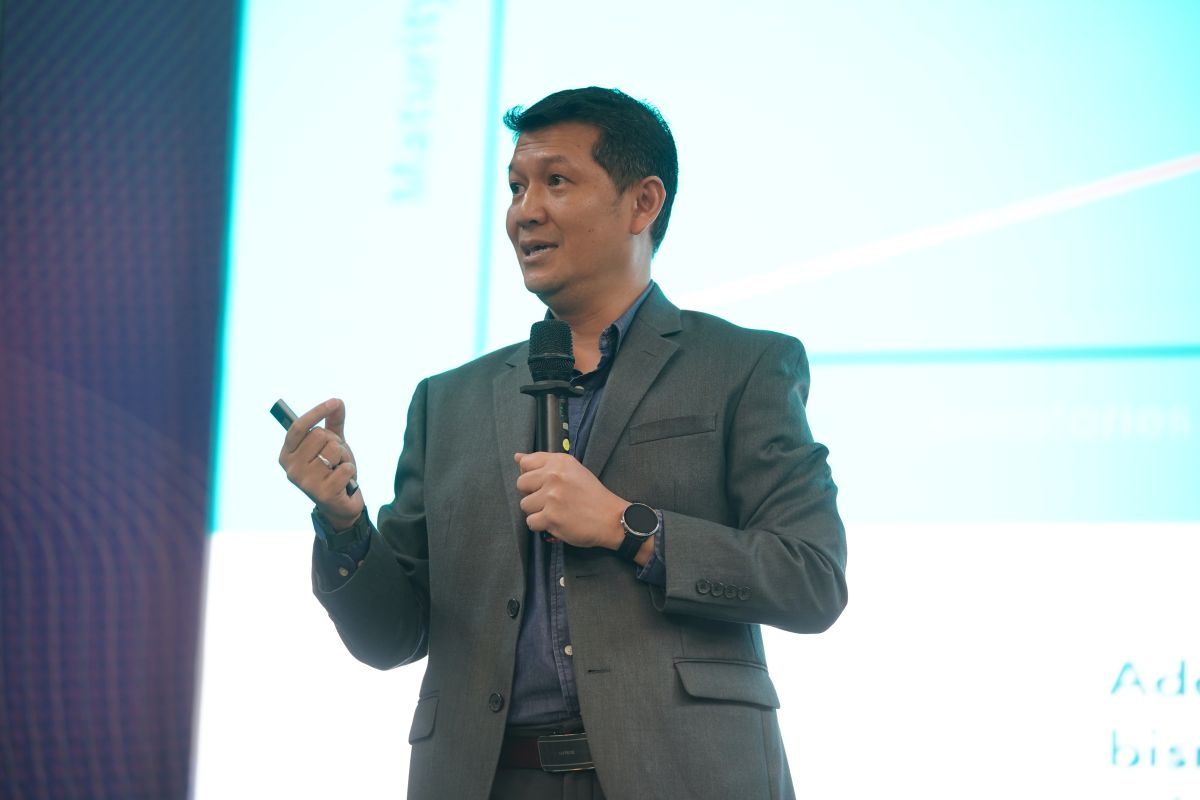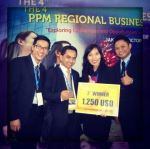SBM ITB Lecturer Team Hosted a Workshop to Instill Environmental Awareness at a Young Age
By Adi Permana
Editor Adi Permana

BANDUNG, itb.ac.id-- The phrase Sustainable Development Goals (SDGs) is probably already familiar to the general population. Many initiatives and actions have been launched to promote the achievement of these SDGs. To accomplish this, multiple parties must work together to fulfill this aim, because socializing the SDGs is not as simple as turning the palm of one's hand.
This prompted lecturers from School of Business and Management ITB (SBM ITB) to act quickly. Dr. N. Nurlalela Arief, Melia Famiola, Andika Pratama Putra, Ph.D., and Dr. Prameshwara Anggagagari lead a research team that focuses on environmental education through bio-based learning. The program's target audience is youngsters, and it has been in place since 2020.
The community service program is based on UNESCO's principles of Education for Sustainable Development (ESD). Children must have a foundation for environmental stewardship. Concern for the environment, on the other hand, will not grow alone. According to Daniel Goleman (a social and emotional intelligence expert), the introduction of new behaviors is based on pupils' cognitive growth. The findings of this study inspired numerous SBM ITB lecturers to incorporate essential skills for early childhood into the SDGs.
SBM ITB Lecturers' efforts to introduce SDGs were carried out through the Teras Hijau Project, a big program to encourage the construction of household-based sustainability (THP). THP targets not just children, but other members of the household. It is intended that all components would work together to develop habits that encourage sustainability.
Using the Storytelling Method
The bio-based learning approach that is used must employ the appropriate communication method. The method employed is a reference to the storytelling paradigm. According to Walter Fisher, the creator, people are storytellers, and the consideration of reason, emotion, and aesthetics is the foundation of our views and conduct.
Another expert, EM Griffin, believes that current theories must be supported by a combination of behaviors, activities, visual displays, and the aim of conveying knowledge. Then, SBM ITB Lecturers use storytelling to teach to children the importance of the environment.
SBM ITB academics collaborated with THP to hold a workshop that included alumni, undergraduate, and postgraduate students from SBM ITB. This activity took place twice, on January 28, 2021 and February 6, 2021, and was attended by primary school pupils from grades 1 to 4 at Taruna Bakti Elementary School in Bandung. A lot of Biology educators were also in attendance. There were more than 100 persons in attendance at this workshop.
Children are introduced to the environment through the notion of urban farming in order for it to be more easily used in urban households. The necessity of environmental protection was also addressed to participants.
SBM ITB graduates who are experts in storytelling approaches and work closely with Kidz Adventura aid in the learning process as well.
Enthusiasm
Even though it was held online via the Zoom platform, the majority of attendees were children who were excited to learn about the bio-based learning environment. Parents described how their children had changed as a result of attending this course. Children grow more responsible as a result of their responsibilities in plant care. They are also more worried about the environment.
Irma Meirani, Head of SD Taruna Bakti Bandung, praised the workshop's implementation. This type of community service can provide direct practice in environmental education by utilizing critical thinking, creativity, communication, and collaboration. Irma hopes that this activity will be implemented in other schools.
This community service program was published in Media Indonesia under the Rekacipta ITB rubric on August 31, 2021, and can be accessed at the link https://pengabdian.lppm.itb.ac.id/information/menanamkan_cinta_lingkungan_sejak_dini
Reporter: Hanan Fadhilah Ramadhani (Civil Engineering, 2019)
Translator: Sekar Dianwidi Bisowarno (Bioengineering, 2019)


.jpg)

.jpg)
.jpeg)


